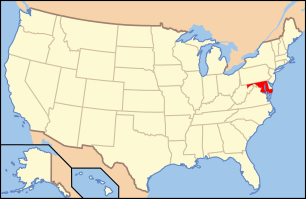Orchard Street United Methodist Church
|
Orchard Street United Methodist Church | |
|
Orchard Street United Methodist Church, March 2012 | |
   | |
| Location | 510-512 Orchard St., Baltimore, Maryland |
|---|---|
| Coordinates | 39°17′51″N 76°37′28″W / 39.29750°N 76.62444°WCoordinates: 39°17′51″N 76°37′28″W / 39.29750°N 76.62444°W |
| Area | less than one acre |
| Built | 1837 |
| Architectural style | Renaissance, Romanesque, Italian Renaissance |
| NRHP Reference # | 75002096[1] |
| Added to NRHP | November 12, 1975 |
Orchard Street United Methodist Church, formerly known as Metropolitan Methodist Episcopal Church, is a historic Methodist Episcopal church located at Baltimore, Maryland, United States. It is a church built in a mixture of revival styles. It was constructed in 1837, with additions made in 1853, 1865, and 1882. The main church is Romanesque Revival, but the rear building is Romanesque with a large Gothic window in its northeastern facade. The nave is approximately 54 feet by 75 feet and features clerestory windows. The rear building is approximately 50 feet by 75 feet.[2] The church was founded in 1825 by Truman Le Pratt, a West Indian former slave of Governor John Eager Howard. It now houses the offices of the Baltimore Urban League and is the oldest standing structure built by African-Americans in the city of Baltimore.[3]
Orchard Street United Methodist Church was listed on the National Register of Historic Places in 1975.[1]
References
- 1 2 National Park Service (2010-07-09). "National Register Information System". National Register of Historic Places. National Park Service.
- ↑ George J. Andreve (1975). "National Register of Historic Places Registration: Orchard Street United Methodist Church" (PDF). Maryland Historical Trust. Retrieved 2016-03-01.
- ↑ "Thinkquest.org, Baltimore". Baltimore. Thinkquest.org. 2008-04-15.
External links
- Orchard Street United Methodist Church, Baltimore City, including undated photo, at Maryland Historical Trust
- Baltimore Urban League website
- Orchard Street Church at Explore Baltimore Heritage

